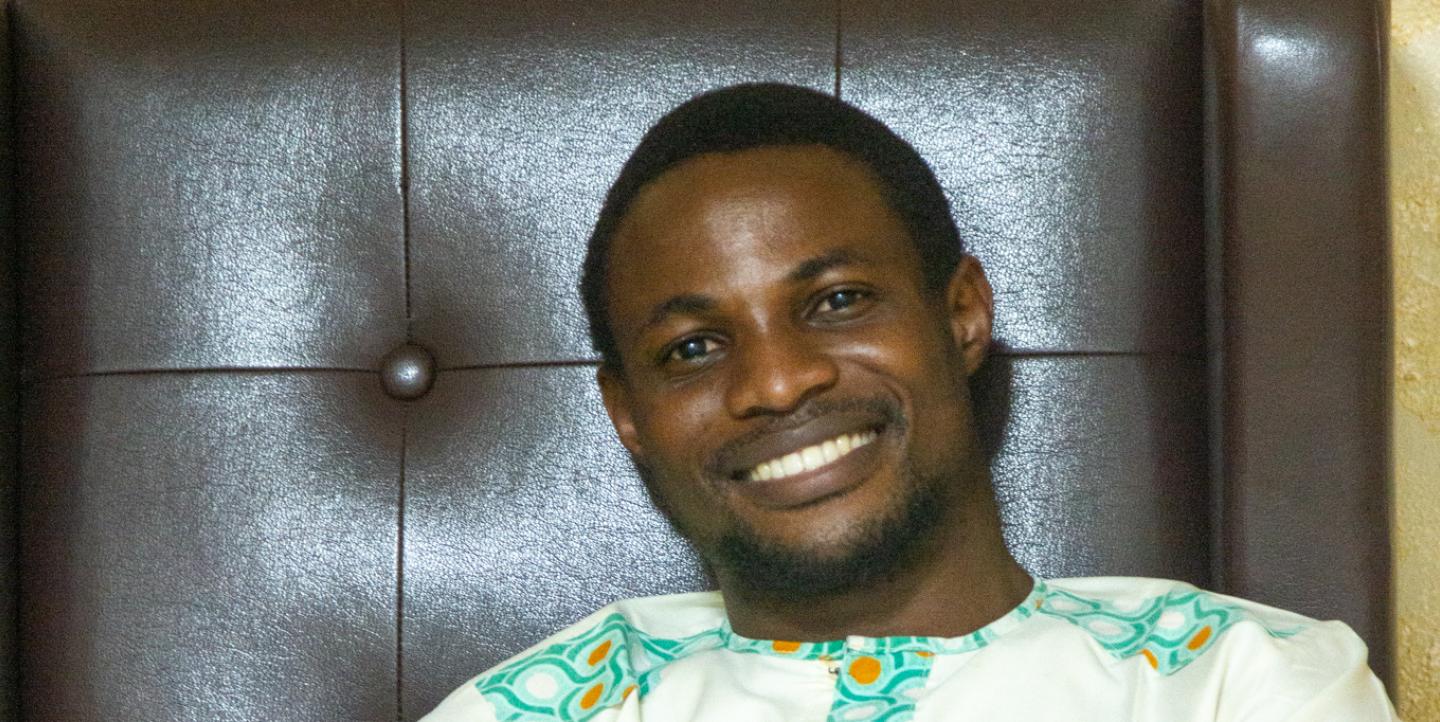Growing up in Otukpo, Nigeria, Amos Abba lived near a newspaper vendor. The neighbor would let Abba borrow newspapers to learn about the events going on in his hometown. These daily interactions introduced him to journalism at a young age. He didn’t know then that it would lead to a career as an investigative journalist.
“I want to be in the forefront of things and shift the narrative,” said Abba. “I can do something like this to change the way people perceive things and to influence society for good.”
He started college in 2012, pursuing mathematics, but his childhood dreams to be a journalist followed him. At the Federal University of Agriculture Makurdi, Abba was a campus reporter for the school’s print publication where he met his mentor, Hannah Ajakaiye — an ICFJ Knight Fellow — and he knew he wanted a career in journalism.
After graduating in 2015, Abba spent a year of service with the National Youth Service Corps, which is required for Nigerian graduates, working as a mathematics teacher for junior secondary students. The service program is designed to promote unity between the different communities through specific areas such as agriculture, health, education and infrastructure.
[Read more: Fact-checkers team up with social media influencers to combat misinformation in Nigeria]
During his service period, he continued his passion for writing as a freelance journalist. He wrote for the online publication The Nation where he covered agriculture.
In 2018, Abba started an internship with the International Centre for Investigative Reporting (ICIR), where he covered sustainable development and health. Shortly after his internship ended, he began as a full-time oil and gas reporter for ICIR.
Abba’s passion for journalism comes from uncovering things that people in power try to hide. His favorite type of stories to cover are ones where he gets to “search and unravel things,” he said. “That’s what makes a story interesting to me.”
In April 2019, Nestle Nigeria built a water factory in Manderegi, Nigeria to supply potable water for the city’s residents. Just two years after its construction, the residents continued to struggle with water scarcity. The fountain Nestle provided was broken and their local stream was being contaminated by the factory’s waste.
Abba broke the story for ICIR, shining light on the broken promises of Nestle Nigeria. Through his coverage, he hoped to promote restoration of the community’s water supply. By October 2019, Nestle Nigeria fixed the broken fountains, checked for waste contaminating and established a barrier to stop the flow of waste into the streams.
“In the age of fake news and media distrust, I write stories that use hard facts to expose individuals who are tricking their communities,” he said. “I like to hold the powerful accountable and plan to do that for years to come.”
[Read more: Student-led outlet fights misinformation, trains young fact-checkers in Nigeria]
Abba also uncovered three shady businesses that claimed to have the cure for cancer, but were actually just extorting money from local Abuja citizens. He went undercover to a small apartment that posed as one of the business’ storefront, which was sparsely decorated with one table and a few chairs. The shelves had a few herbal products that could be removed quickly. After discussing the issues of the “patient,” he realized that the company only sought money and disregarded any actual diagnoses.
The herbal drug company was on the rise due to expensive treatment costs that the citizens could not afford. Unfortunately, the herbal supplements didn’t yield any results, and citizens would waste their money on constant treatment. Abba brought to light the underground business and ignited more studies to be done on these drugs that were promoted.
Many journalists who expose companies and powerful leaders’ wrongdoings often experience threats and intimidation for their work. Abba is aware of these dangers, and he implements safety precautions and discusses the issues with his editor who decides how to handle the situation.
“We publish stories pointing out if I got threatened, just to put that out in the open,” he said. “We have to ensure that we are exposing the people that make verbal threats as proof to see if something escalates beyond that.”
Abba entered his work into contests he found through IJNet, which earned him numerous awards. In 2019, he won third place in the Fetisov Journalism Awards and shortlisted for the Kurt Schork Memorial Awards for the Nestle Nigeria story, and he was shortlisted for the Thomson Foundation Young Journalist Award for the cancer medicine story.
To succeed in journalism, Abba said, “You have to have a high ethical consideration and a nose for news. Curiosity should be what drives you as a journalist, but have restraint to balance your nose so you don't just push out news that people consider fake news.”
Naomi Ludlow is an intern with IJNet.
Main image courtesy of Amos Abba.

